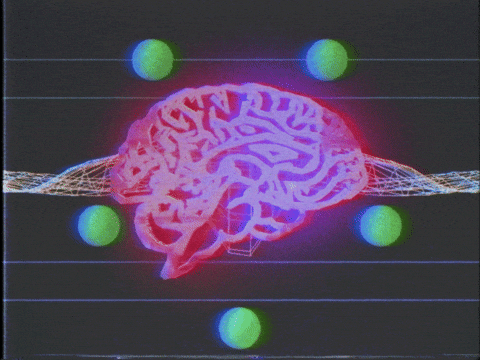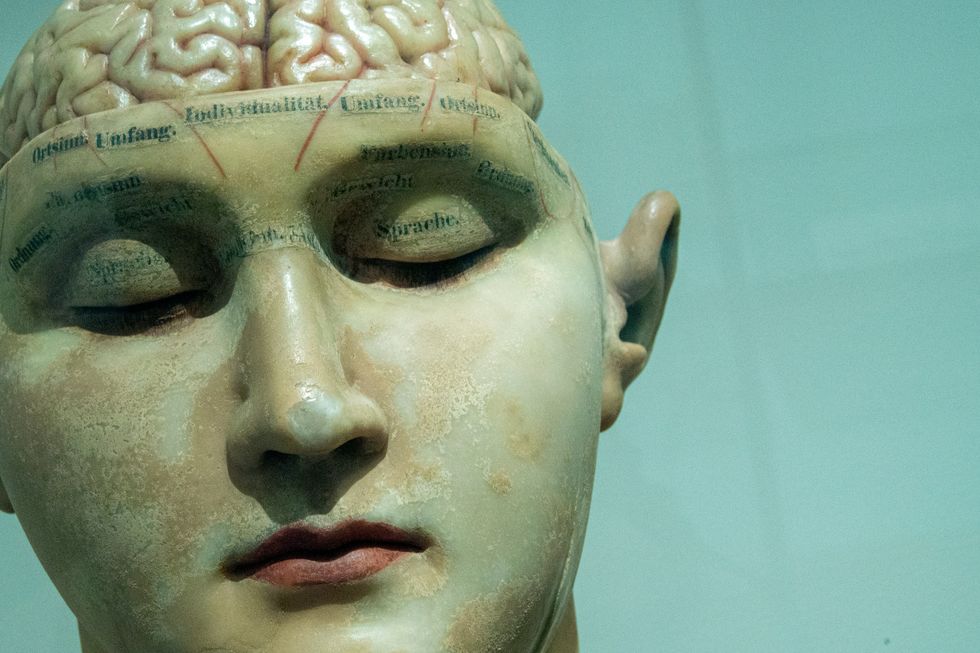Ever had the feeling that you can't quite live up to the expectations on which you've sold yourself? You're not alone.
Imposter Syndrome is really nothing new. It was named by psychologists Pauline Clance and Suzanne Imes in the '70s, and, although it can't be officially clinically diagnosed, it's believed to be prevalent in 9-82 percent of people, "depending on the screening methods."
As described in the 2019 article, "Impostor Phenomenon Measurement Scales: A Systematic Review," "The impostor phenomenon is a pervasive psychological experience of perceived intellectual and professional fraudulence." Some of the key points in the article reiterate fear of being exposed as "frauds—with a perceived inability to replicate their success. This fear exists despite evidence of ongoing success."
That's the key. A person might have extensive diplomas, years of awards—and yet, their mind tells them they simply got lucky and tricked the world.

(Interestingly, it's the opposite of a phenomenon called the Dunning-Kruger effect, where a person with average expertise and abilities will OVER-estimate and represent themselves. That one sounds like more fun.)
In this modern age, where many people are prone to scrolling Instagram and TikTok at an alarming rate, some might feel insecure as they compare their real lives to online curated "highlight reels." It's common, actually, and can result not only in FOMO but also in the fear that if people knew the "real" you—the one behind the Insta story—they might think you're not all you're cracked up to be.
In the Psychology Today article "Imposter Syndrome Revisited" by clinical psychologist, Shannon Sauer-Zavala, Ph.D., Sauer-Zavala makes sure to note what Imposter Syndrome isn't: "Despite what social media might suggest, imposter syndrome isn’t just feeling nervous before a big moment. It’s a deep-seated belief that you don’t truly deserve your achievements—and that sooner or later, people will figure it out."
Sauer-Zavala explains how the syndrome might present itself. Some inflicted by it are such perfectionists that they feel they can't make mistakes. This might cause them to work constantly—never breaking for a social life or even a meal. Others experience "avoidance," which might cause them to "hold back from opportunities because failure would 'confirm' you don’t belong." And some simply can't hear praise being bestowed onto them.
The good news is that these feelings can be conquered. Because, as it's pointed out, they ARE just feelings. "Imposter syndrome is a feeling, not a fact. And it’s one that thrives in isolation and self-doubt—but shrinks in the face of evidence and action," says Sauer-Zavala

- Understand it's Often the MOST Competent People Who Feel Like Imposters
If one can grasp that this feeling is common in "high-achievers," this could give them comfort that they're in good company. "Imposter syndrome often hits hardest when you’re growing, stretching, or stepping into new territory—which means it’s actually a sign of progress."
- Create a "Win File"
Sauer-Zavala describes this as "a place where you store praise, accomplishments, and reminders of your expertise. When imposter thoughts creep in, revisit the evidence."
- Understand that Doubting One's Self is Simply Growing
Retrain your mind to realize that the fear you're FEELING is a normal part of trying something new. "Instead of thinking, I don’t belong here, try: I’m in the process of growing into this role."
- Talk About It
She stresses the importance of sharing the self-doubts with others, whether they be trusted friends, therapists, or family members. Because it's so common, "you’ll likely hear, 'Oh yeah, me too,' which helps dissolve the illusion that you’re alone in this."
- Be Proud
Own it. "Next time someone compliments you, resist the urge to deflect or downplay it. Instead of, 'Oh, it was just luck,' try: 'Thank you—I worked really hard on that.'"
A potentially compelling thing to note is that therapists themselves often feel this way, especially with the extra stress of helping others feel better. On a subreddit r/therapists, someone begins the discussion, "You (Probably) Don't Have Imposter Syndrome."
They write, "If you have less than 5 years of full-time experience providing therapy and you feel insecure, that isn't imposter syndrome. You're just new. Don't over-pathologize yourself. Imposter syndrome is when you feel insecurity that is disproportionate to your experience and skill level. Your insecurity is appropriate. Your brain has correctly identified that this is a very hard job that even people with 30 years of experience have not mastered. It isn't a syndrome. There's no trick. You need to do more therapy to become more confident. If you didn't feel insecure right now, you'd be a bit delusional."

The comment section was filled with people expressing gratitude, as they too were experiencing these feelings. One writes, "Appreciate you normalizing that experience!"
OP's words could apply to most people, not just therapists. Bottom line: no matter what your profession, try to give yourself a break or even an occasional pat on the back. Feelings aren't facts, and it's important to remember that.
















 Big Brain GIF by Jay Sprogell
Big Brain GIF by Jay Sprogell
 Shake It Off Wet Dog GIF by BuzzFeed
Shake It Off Wet Dog GIF by BuzzFeed
 Working out with friends also makes exercise more enjoyable (and feel quicker).Photo credit: Canva
Working out with friends also makes exercise more enjoyable (and feel quicker).Photo credit: Canva
 Human anatomy model.
Photo by
Human anatomy model.
Photo by 
 Socks warm your feet, but cool your core body temperature.Photo credit: Canva
Socks warm your feet, but cool your core body temperature.Photo credit: Canva
 A new t-shirt could open up more hospital beds for patients.Photo credit: Canva
A new t-shirt could open up more hospital beds for patients.Photo credit: Canva Wearable solutions could be revolutionary.Photo credit: Canva
Wearable solutions could be revolutionary.Photo credit: Canva Many wearable tech devices could help you monitor your health.Photo credit: Canva
Many wearable tech devices could help you monitor your health.Photo credit: Canva
